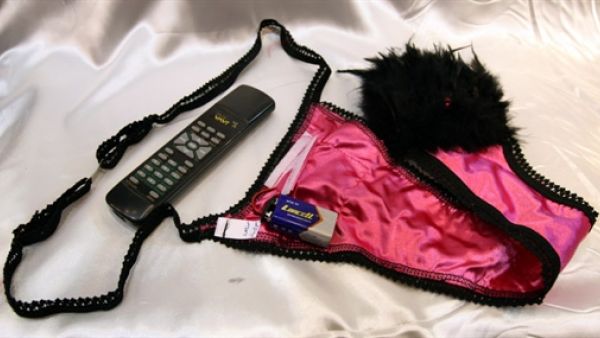By Camilla Greene
Manicured woman's hands enveloping the wearers' crotch and breasts. Flashing fairy lights. Plastic trinkets. Electronic gadgets and musical knickers.
What, if anything, do the above have in common...?
Each is a piece in Syria's unique brand of fantasy lingerie. And these off-beat bedroom fashions have actually been around since the 1973 war with Israel (Yom Kippur). Highlights such as this are sold in Jordan, Egypt, Lebanon and even Saudi Arabia.
"You cannot celebrate when you're afraid," claimed Nihad Tabbakh, a lingerie shop owner in Aleppo's Old City. "After the war, there were many weddings, and women [for the first time] began to wear sexy lingerie."
It’s often said that attitudes towards sex in the Middle East have become more conservative over the last 20 years, but if that’s the case what are we to make of “Jasad”, an Erotic Arabic-Language Review Magazine, launched by Arabs for Arabs in December 2008? It’s a magazine that arrives in bookshops, or via private courier, sheathed in nylon to avoid the eye of the censor. Joumana Haddad, the Lebanese founder of Jasad – which means ‘body’ - claims that has been virtually impossible to sell the magazine in countries such as Saudi Arabia, the UAE and in Bahrain.
Unlike Syria's loud-and acquired--taste in lingerie, Jasad would not be out of place on Western newsstands. Haddad maintains the magazine plays a vital role in reminding people in the East that the body is a subject which the Arabic language can accommodate, perhaps better than most if “One Thousand and One Nights” is anything to go by. She assures us that “some things people wrote in Arabic a long time ago would make the Marqis de Sade blush”. Outlining 36 positions and poses, and insisting that the lover must “not mate with the woman until he has excited her by sucking her lips and kissing her teats”; Sheikh Nefzawi's C17th,“The Perfumed Garden,” is the ultimate poetic sex manual, in which sexual equality is almost the name of the game.
Jasad describes itself as an attempt to “reclaim the body” – one of the magazine’s boldest moves is perhaps in refusing to publish anonymous work. Haddad wants to discourage the “duality of saying something, but believing something else”, which she claims is “widespread in the Arab world”.
There have been small but significant victories: “one woman sent in a short story, but wanted to publish it with a pseudonym. After a month of talking to her, she agreed to publish it under her own name.” Haddad also sees Jasad as raising the bar for Arab writers: “It is one thing to read Erotic writing in french”, but it makes a huge difference if, “in your language there has already been published something provocative and subversive.”
When all is said and done, however, the buying of fantasy lingerie is still sanctioned only within the context of marriage: girls have actually been known to feign innocence and surprise when items of lingerie are unwrapped at Wedding Showers, and even to buy fake engagement rings at Suq Hamiddye to legitimize their curiosity.
Perhaps this truly is a social revolution, or something more subtle: the slow return to a more honest discussion of sexuality such as was last seen in the literature of the Islamic Golden Age (850-1350 AD)?







